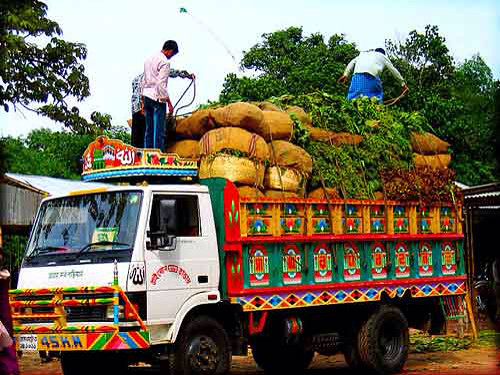Why is this issue important?
Fossil fuels are essential for modern, mechanized agricultural production systems. Petroleum products are used directly to power tractors, machinery and irrigation, and to transport, transform and package agricultural products. They are also used indirectly to manufacture fertilizers and pesticides and prepare seeds. Thus, food production is energy intensive. For example, approximately 2 000 litres per year in oil equivalents are required to supply food for each American, which accounts for about 19 per cent of the total energy used in the United States (Pimentel and others 2008).
The industrialization of agriculture, known as the Green Revolution, occurred during the middle of the 20th century, as farming became increasingly dependent on direct and indirect fossil fuel inputs (Wood and others 2010). Between 1945 and 1994, agricultural energy inputs worldwide increased four-fold while crop yields increased three-fold. Since the early 1960s, the global growth in cereals depended almost entirely on agricultural intensification, with little expansion in the area harvested (UNEP 2011) (Figure 1).
As machines replaced farm workers, the energy output-to-input ratio declined (Figure 2) (Pfeiffer 2003). In industrialised countries today, one food calorie requires expending an average of between seven to ten calories of fossil energy (Dahlberg 2000).
While food production—not to mention transportation and many other modern systems—has become ever more dependent on oil, world oil reserves have been dwindling. The amount of oil that can be recovered cost effectively and the date at which oil production will begin to decrease is known as “peak oil”. Estimates of peak oil vary widely. In 2010, the International Energy Agency (IEA) reported that conventional oil production reached a plateau in 2006 and started declining in 2009 (IEA 2010) (Figure 3). More


